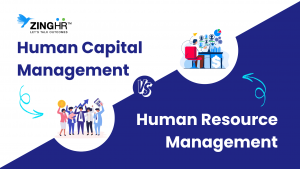Corona has caught everybody in a situation that is highly volatile. In this pandemic, leaders across the industry are faced with a myriad of critical decisions like taking care of their workforce without hampering the business productivity. In this session, we will share our perspective on exactly how we can get accustomed to the inevitable change approaching in our work life environment, and what challenges are critical and should be tackled first.
Our Speakers

Mr. Alok Sheopurkar
Executive VP and Head HR at HDFC Asset Management Company Limited

Ms. Geeta Gurnani
Director – ISV and Next Generation Partnerships at Microsoft

Mr. Prasad Rajappan
Founder and CEO at ZingHR

Mr. Alok Sheopurkar
Executive VP and Head HR at HDFC Asset Management Company Limited
Productivity is a function of input to output. There is technology, method, money and resources; but what gives you true productivity at an acceptable global level is the culture of the organization. It is said, when the CEO leaves the room, the culture takes over. So going forward my emphasis is going to be on what is the softer aspect to get world class productivity from ordinary people because we have to get extraordinary results in order to help our country to become one of the leaders.
Ms. Geeta Gurnani
Director – ISV and Next Generation Partnerships at Microsoft
As we enter New Normal, business productivity is one of the key questions not only with organizations but also with individuals. From the perspective of individual productivity, this New Normal is also going to be an emotional challenge. We are vocal about the virtual office environment, but it’s actually in a physical world of home and staying productive. The latest report of April from Deloitte suggests that the individual productivity has gone high, but overall organizational productivity has slipped to certain extent; given that they were not able to utilize every role. But has our individual productivity really gone up, or are we investing our personal time to cope-up with the business in this crisis? Productivity will differ according to your role in the organization. But we all need to acquire skills like digital selling, conducting effective virtual meetings and keeping the momentum high.
Also there is an emotional need to stay relevant and connected.
At an organization level, the challenge is even bigger. We need to strategize for all the diverse roles we have and be inclusive. We have a large workforce in India which is still not digitally literate. I will quote something that I heard from Mr. Satya Nadella. He said, “We are currently living in 3 phases, first was the response phase, where everyone moved to digital working. This worked for some roles, but not for all. Second phase that we are entering is Adjusting the Dial, where we are learning what will be the new reality, redefining new policies, enabling people, tools and technologies for productivity. Third phase will be the certain changes that will stay permanently after people realize the power of moving to digital”
Whether it be individual or organization, collaboration & inclusivity will be essential for productivity. We at Microsoft took steps like transparency, regular individual calls with the managers, counseling sessions for the employees and their families, because we realized this is not a 3 month phenomena but will last for 6-9 months.


Mr. Prasad Rajappan
Founder and CEO at ZingHR
Corona has changed our work life balance to video call – voice call balance, weekends to which day of the week it is. Coming to productivity, I feel there is a need to redefine or relook at its definition. Fundamentally, Productivity = Outputs/Inputs. In my opinion, Outputs = Purpose and Inputs = Means. Owing to the current crisis, it’s important to look at the inputs that we are giving for productivity. These can be classified into essential and non-essential; and there is a need to eliminate all the non-essential activities.
At ZingHR – Global HR Software Solution, we have realized that the value adding activities stand at 5%. I think Covid has given us the time to define the value adding activities and go ahead.
Covid bought forward challenges like, Business Continuity, Improve Productivity and Compliance, with questions like Collaboration, Transparency and Up-skilling. This led us to collaborate with Microsoft and get some solutions, especially HR Tech mobile solutions.
Questions

Can you elaborate further on the Work from Home Policy Framework? What should be the ideal policy framework that should be implemented?

I believe Work from Home is new in Ms. Snigdha’s organization, like it’s in mine. Work from Home concept mainly existed in IT and ITES. In my opinion, there are few key points to be considered from an HR perspective, when defining Work from Home. I will discuss both hardware and software aspects. For hardware, it’s about who would be responsible for managing infrastructure that includes everything from routers to laptops that’s essential for being productive. Second major factor is defining the working hours of employees. For instance, in Western countries, calls or mails are not expected post working hours. However in India, the boundary between working hours and personal life gets blurred. How do we manage the breaks and silent hours in that case? There is also a need to consider the policies for female employees as they are managing both homes and work. Leave policies will also need to be redefined. Most of the office work will be replicated at home, but many things will have to be re-evaluated. There are multiple dimensions to this. We will need to make workplaces a safer environment. A broad discussion is required on this subject; however we can consider the above pointers which can trigger a proper framework for Work from Home policies.
How can digital tech play a role here?

There are 2 aspects. Now technology is a way of life, it’s no more a choice. But what we did during the phase 1 of Covid was, we moved from physical to digital workplace. We did not emphasize on any policies or how to better leverage technology for productivity. But in phase 2, I think technology will play an important role, with all the features that the collaboration platforms offer to the employees to stay productive. Like, till sometime back, I did not use the feature of Outlook which shows me my pending work list. But now, I’m making use of Machine Learning to check my pending items. We have analytics that give us the report on how many hours we have worked for the past week and were there any silent hours. HR will need to pull these reports to see how the employees are spending their time.
So in my opinion tech will play an important part, first in productivity and second in inclusivity. There are many people in India who are not tech savvy or are digitally illiterate. We need to have solutions which are multi-lingual and voice enabled. So there is a need to have accessibility enabled solutions and policies when it comes to using technology
Business Productivity during the current economic situation

It’s a very pertinent question. Like I said before, today we need to redefine productivity owing to the changing demands of customers and employees. Both financial and emotional needs are changing, cash flows are disappearing and business models are changing. So it becomes essential to remap the business models and redefine productivity. This will definitely help us in navigating better through these challenging times. Like Ms. Geeta mentioned, we need to be inclusive; we need to take care of all the stakeholders, contractors as well as vendors.
How to handle Non Cooperating Employees?

During pre-covid, when any employee started their work day, they wanted to give their best. No one in my experience, ever started the day with, I am going to curb everyone’s happiness today! But there could be one bad conversation and the paradigm shifts. So we as leaders need to understand the chemistry that leads to non cooperation. Is there a failure of commitment, poor engagement, low care, unavailability of infrastructure, no recognition? What is causing the non cooperation? If we can spot this in early stages, diagnose and eliminate it then it will never lead to a breakdown.
During pre-covid, when any employee started their work day, they wanted to give their best. No one in my experience, ever started the day with, I am going to curb everyone’s happiness today! But there could be one bad conversation and the paradigm shifts. So we as leaders need to understand the chemistry that leads to non cooperation. Is there a failure of commitment, poor engagement, low care, unavailability of infrastructure, no recognition? What is causing the non cooperation? If we can spot this in early stages, diagnose and eliminate it then it will never lead to a breakdown.
Make rural new urban. Can we make metropolitan related career opportunities available In rural/remote locations, since travelling around will be next to possible?

It’s an interesting question. I think we should also think about making the city new rural, because many of us think about what if we can go and decongest the metro. There is so much density in metros; the working population is dense in certain cities. My submission would be the step one should be about thinking on decongesting the metros, and give people opportunities to work from wherever they are including rural areas. The reason being, it’s essential to skill the rural people for the digital opportunities that are coming their way. Otherwise there could be a dip in productivity from what we expect. Also it may not be a 100% digital world; it may be a phygital world. There is one more thread on LinkedIn, where we are calling for more female employees, as that will give a boost to our GDP. Not due to gender diversity, but because males and females have a different way of working and responding to situations. So the skilled mothers, who are right now at home, can be our first step, followed by decongesting metros and skilling rural populations.

This question is very close to my heart. You can also refer to the article that I have recently published on LinkedIn on Life Trends post Covid: https://www.linkedin.com/pulse/life-trends-post-covid-19crystal-gaze-alok-sheopurkar-pcc India lacks urban centers. Cities like Ahmedabad, Vadodara, Dehradun, Ludhiana etc are now slowly coming up. After this the government released a scheme ‘100 smart cities’. The whole idea was to decentralize the economic activities. Today if we look at the top 100 cities in India, I think every city is offering the same infrastructure as Mumbai. So I think slowly and steadily there is a conscious work happening.
How will the hiring of blue and white collar employees be impacted post Covid-19 situation?

The hiring is currently on freeze due to the on-going situation. However when essential sectors like warehouses, retail or factories open; there will be a dark reality that the majority of the workforce will be missing. So in my opinion, post covid, there will be a realignment of hiring. You will need to hire fresh employees, especially in blue collar; which will also make it necessary to skill them. There will also be a geographical change, where the majority of the employees would now be from nearby cities. For white collar, I think there will be a perspective of changing fixed costs to variable costs, and many companies will start engaging with consultants and freelancers.
Monitoring tools for WFH Productivity

We need to define the purpose of these HR tools. Is it monitoring or outcomes? In Work from Home, you need to trust your employees and be transparent. This will help in better productivity. For HR technologies we have multiple options like, geo-fencing, timesheets, surveys, collaboration tools and so on. My advice would be, have a right balance of HR technology and employee relationships.
What shape of the Economic recovery (V, U, W or L) do you expect? Which sectors of the Indian economy are likely to recover the fastest? Which will be the slowest?

The recovery shape is difficult to predict at the moment. But in my opinion it will be shape C on the floor. Depending on quantitative easing, some of the sectors which in my opinion can come out faster are infrastructure, pharmaceuticals, chemicals and agriculture.
BCP planning and a better use of Microsoft Office 365

Business Continuity Plan is a very big charter in itself and Microsoft Office 365 can be a part of it. For everyone’s benefit, there’s this site that we have launched on remote working and business planning: https://www.microsoft.com/en-in/remoteworking You will find all the resources and solutions for BCP here. We have multiple solutions from Microsoft as a first party as well as third party, for all your business continuity needs.
Considering Work from Home and teams, some members of the team could be more productive compared to few members of the team due to extraneous factors which could not be in their control such as access to a robust internet connectivity or other factors. This could lead to some members being more overworked than others which affect Team Morale. In such cases, managers play a key role. What could be the ways to manage such teams?

This is a practical problem, where people are having difficulties to work without any disturbances at home. We do not have any solution to this right now. We need to find out different ways to moderate the teams.

There still are managers who let the team burn out and leave, and then hire new people. But this attitude will not give you a competitive edge and good brand. For that you will have to prevent your team from burning out and take extreme care of their needs including infrastructure and breaks.
Managing big data for decision making dashboards has increased in a short TAT, what means can be used for faster results?

If by big data for decision making dashboard, you mean all the structured and unstructured data that comes your way; I will highly suggest you visit some of the government sites; it’s highly impressive how the government is using the insights for the huge amount of data. Like Maharashtra government is using the Microsoft Power Apps and Power BI platform. More than the data, it’s very important to consider, are we giving the decision makers the right insights of the data to take the decision. PowerBI and other reporting tools will help you in deriving the correct insights of the data.
Life after COVID 19

You can refer my article on LinkedIn: https://www.linkedin.com/pulse/life-trends-post-covid-19crystal-gaze-alok-sheopurkar-pcc On a higher level, many people are questioning their purpose. So there is a different slice of life for everyone. Migrant workers are thinking if they can come back to cities, professionals are concerned about their next month salaries and employment. I want to be optimistic and I’m sure life will be better after Covid, and we all will be better citizens.

I agree that we need to be optimistic. I will give you our example, when suddenly Covid made us realize that People Management is an essential commodity. I believe all the sectors will be able to realize that there is a new horizon that this crisis is opening. Covid has been a great leveler. Everyone is now standing at the same point, and it’s an opportunity to start afresh.

I will continue with the optimistic thoughts. I think it’s the time for us to think, should we move our traditional world into the New Normal or should we really think about the new world which has better productivity. So there is an opportunity for all of us to contribute to new thinking, so that the world becomes a better place to balance out.




